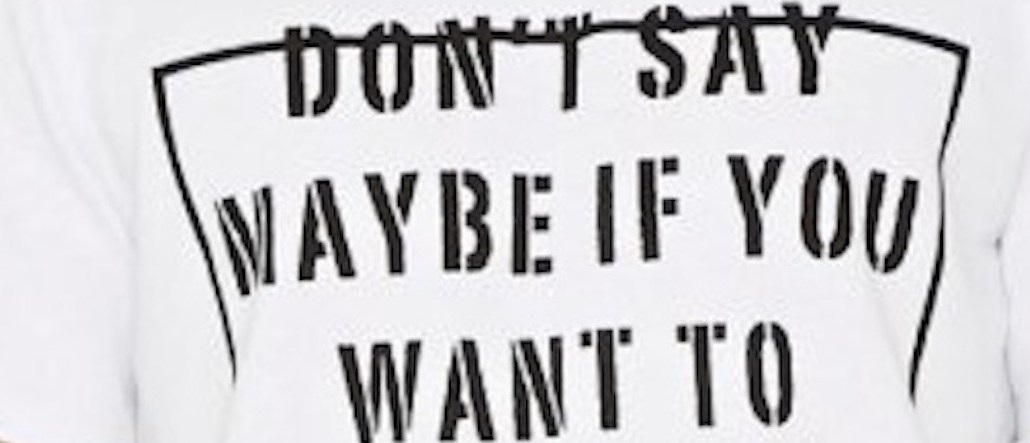Last chance to save on Digiday Publishing Summit passes is February 9

Forever 21 is discovering that one of its alleged humorous shirts is anything but funny.
The fast fashion chain is stoking outrage over a men’s T-shirt that stupidly makes fun of rape. “Don’t say maybe if you want to say no,” the shirt reads. Forever 21 is selling the shirt in stores and, at one point, sold it online.
In a statement to Digiday, Forever 21 said it “strives to exemplify the highest ethical standards and takes feedback and product concerns very seriously.” With that, it pulled the T-shirt from its website today and said it “sincerely apologizes to anyone who was offended by the product.”
Still, it apparently took Forever 21 at least several weeks before it took action, as seen by pictures people posted of the shirt in stores:
GOTTA LOVE THAT RAPE CULTURE AT @Forever21
I’M ASHAMED FOR YOUR COMPANY pic.twitter.com/m1zP138Nr7— liam @ FAREWELL (@tf2chainz) February 12, 2016
@Forever21 how about we not perpetuate rape culture with your $19.99 shirt “don’t say maybe if you want to say no” why is this a good idea??
— Elle Wal (@LWald13) March 14, 2016
Who signed off on this shirt?! https://t.co/gz7Te2KAiL
— AnnaMaria Di Pietro (@AnnaMariaDP) March 14, 2016
Forever 21 isn’t new to controversy. Last month, its shoppers lashed the brand for its plus-size Instagram account with models that didn’t appear to fit the larger size.
More in Marketing

In Q1, marketers pivot to spending backed by AI and measurement
Q1 budget shifts reflect marketers’ growing focus on data, AI, measurement and where branding actually pays off.

GLP-1 draws pharma advertisers to double down on the Super Bowl
Could this be the last year Novo Nordisk, Boehringer Ingelheim, Hims & Hers, Novartis, Ro, and Lilly all run spots during the Big Game?

How food and beverage giants like Ritz and Diageo are showing up for the Super Bowl this year
Food and beverage executives say a Super Bowl campaign sets the tone for the year.





